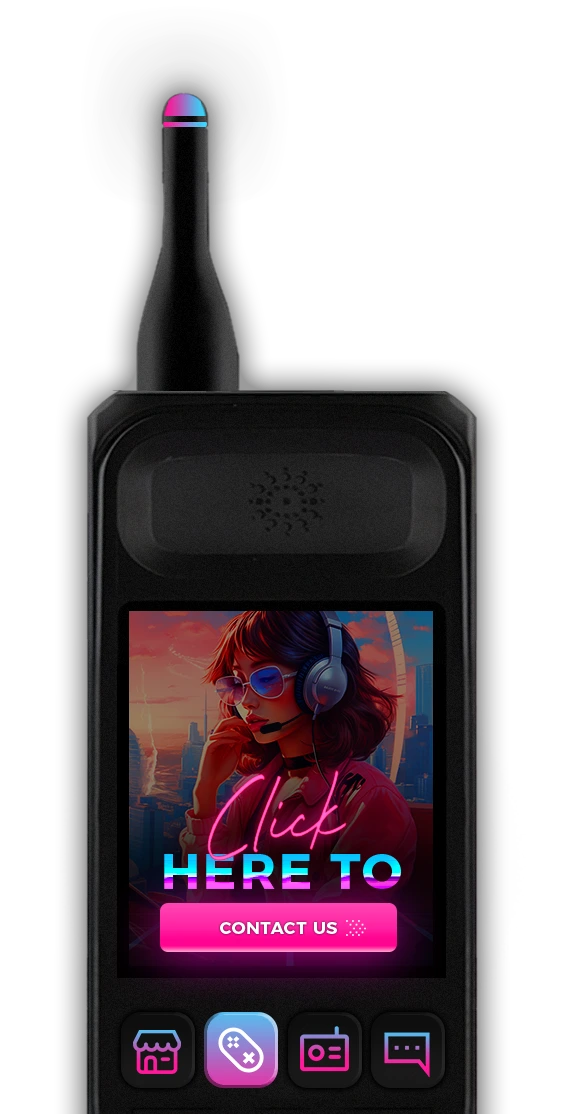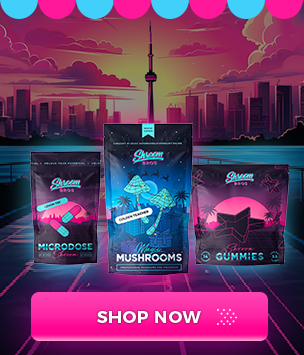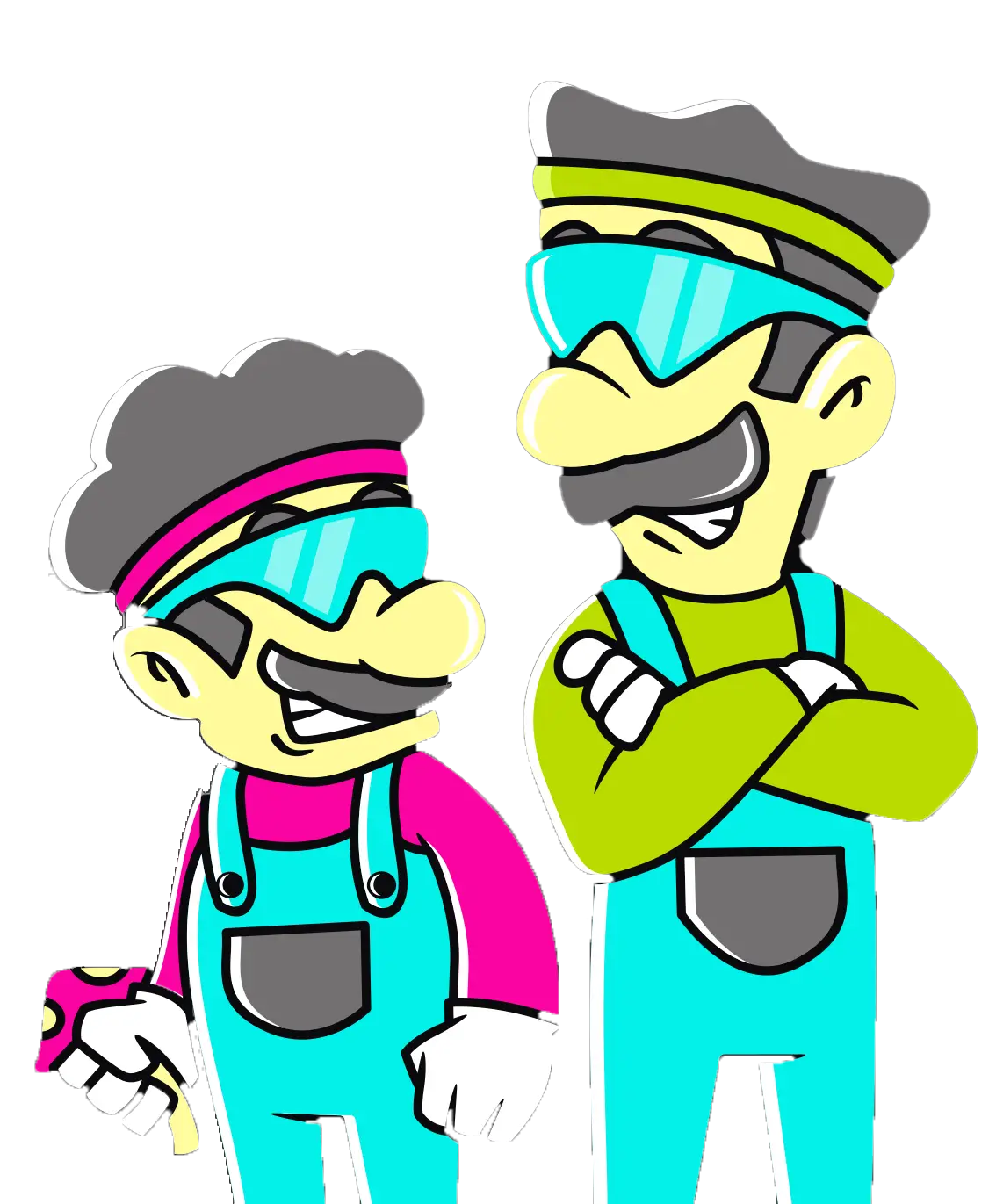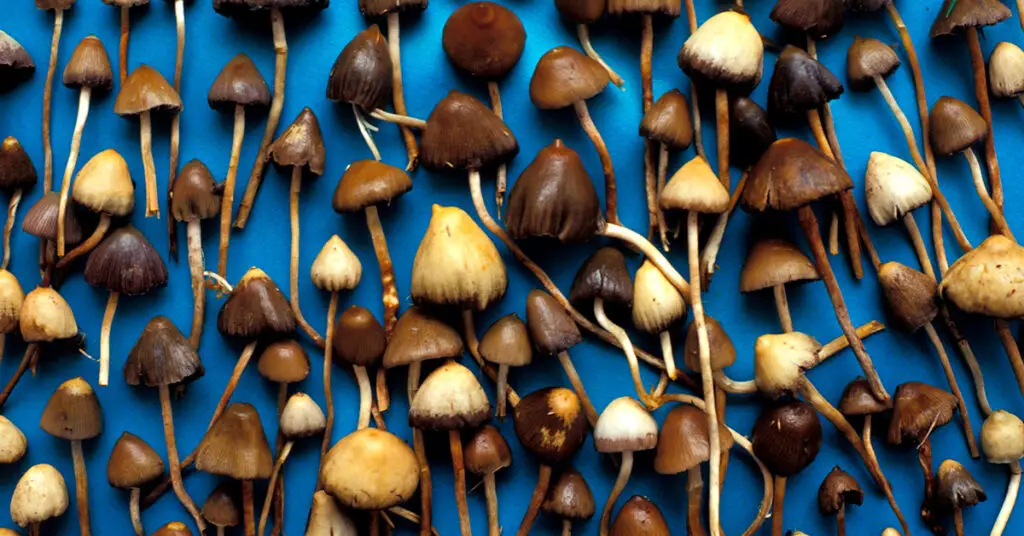
Answered on this page:
- What are Magic Mushrooms?
- What is Depression?
- Do Magic Mushrooms Help with Depression?
- How Do Magic Mushrooms Help with Depression?
- Which Magic Mushrooms Work for Depression?
- Can Magic Mushrooms Cure Depression?
Over the past five years, researchers in Canada and the United States have changed the public narrative around psychedelic substances with revolutionary new research into the potential of magic mushrooms as a treatment for depression.
The legal landscape for magic mushrooms is also changing, with several U.S states pushing for legalization or decriminalization and Health Canada having granted 24 legal exemptions for end-of-life psilocybin therapy since August of 2020.
As a result of these changes, Canadians are increasingly curious about the possibility of treating symptoms of depression with magic mushrooms – but can we be sure that it works?
If you’re interested in learning more about the connection between magic mushrooms and depression in 2021, we’ve got you covered. We’ve created this guide to bring you up-to-date on the most current clinical investigations into treating depression with magic mushrooms.
We’ll start with a short overview of both magic mushrooms and depression, defining the terms that are most important in this article. Next, we’ll review findings from five key studies on magic mushrooms and depression to get a better understanding of whether magic mushrooms can really make a difference. Following that, we’ll look at more research that tries to explain how magic mushrooms work in the brain to influence mood and emotions. Finally, we’ll answer some of the most frequently asked questions about magic mushrooms and depression in 2021.
Let’s dive right in!
<Hey Reader! We just wanted to take a second to remind you that we’re not your doctor. We’ve done our due diligence in creating this educational article and provided links to every study we reference, but this article is not medical advice and should not be taken as such. If you need medical advice, talk to your doctor!>
What are Magic Mushrooms?
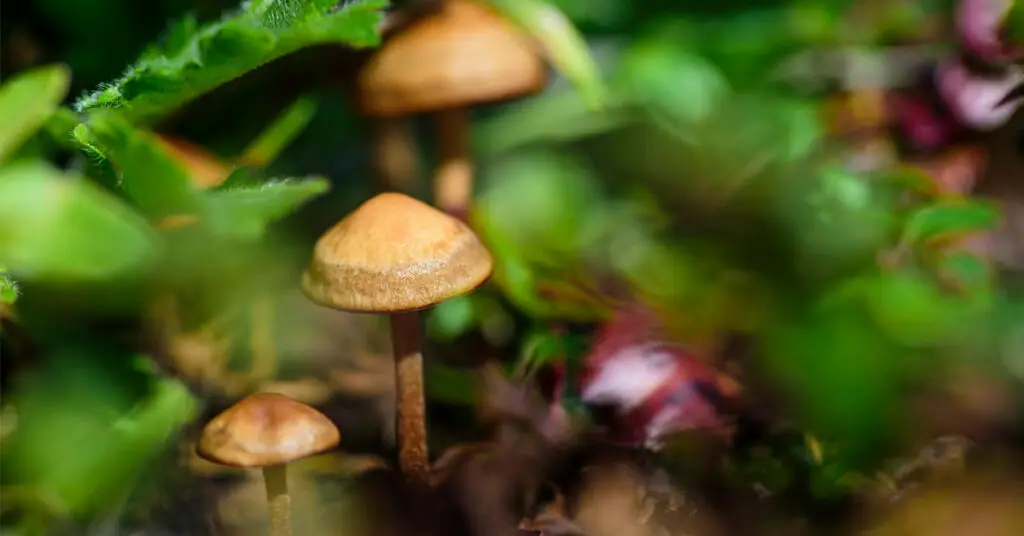
Magic mushrooms are a family of mushrooms that contain the hallucinogenic compound known as psilocybin.
Because of their hallucinogenic properties, magic mushrooms have been used in religious, healing, and divine rituals throughout human history, dating back to at least 6,000 years ago. The Aztec people of Mexico and Central America, who referred to psilocybin mushrooms as “the divine mushroom”, consumed it during religious and civic ceremonies.
Knowledge of magic mushrooms spread around the world during the 1960s as westerners engaged in spiritual tourism trips to Mexico where they would take magic mushrooms in ritualistic ceremonies with indigenous peoples. It was soon discovered that mushrooms containing psilocybin grow naturally on all six continents.
Consuming psilocybin mushrooms has been observed to produce a variety of sensory and emotional effects, including:
- Visual and auditory hallucinations,
- Altered perception of time and space,
- Altered perception of tactile and sensory stimulation,
- Muscle relaxation and dilated pupils,
- Reduced concentration.
In addition to the hallucinogenic symptoms enjoyed by recreational and spiritual mushroom-lovers, new research has emerged that reveals more about the long-term emotional impacts of taking magic mushrooms (more on this later), including the potential impact for treating depression.
What is Depression?
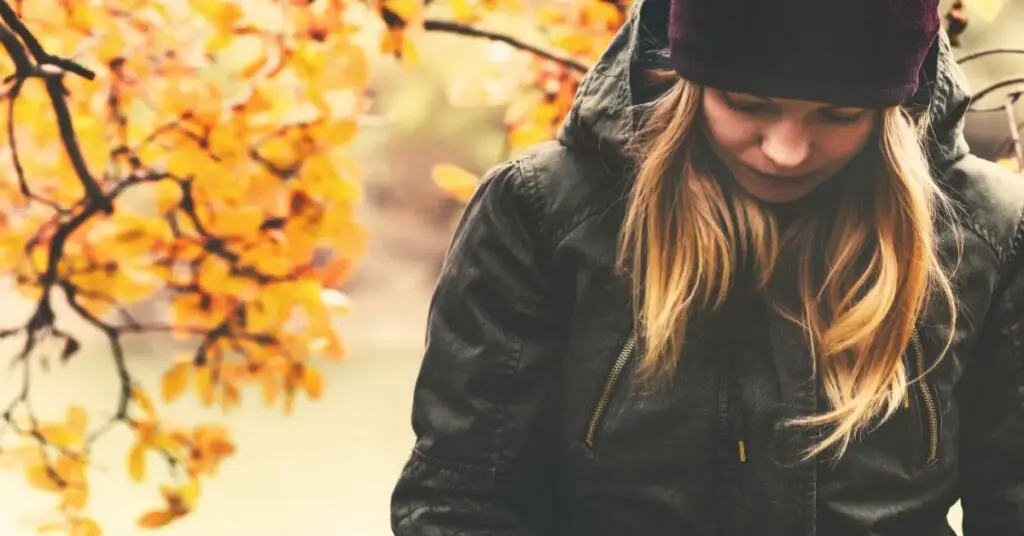
Depression is a common mood disorder and the world’s leading cause of disability, with over 264 million people affected around the world.
Depression is not the same as occasional mood fluctuations or emotional responses to life’s daily challenges – episodes of depression are often longer-lasting and result in more severe symptoms that may include:
- Increased aggressiveness or irritability,
- Increased anxiety or restlessness,
- Unpredictable mood swings,
- Disrupted or erratic sleep patterns,
- Reduced sexual desire or lack of performance,
- Feelings of despair and hopelessness,
- Physical symptoms such as chronic pain, headaches, digestive problems, or chronic fatigue,
- Lack of productivity and low self-esteem,
- Slowed speech and cognition,
- Reduced appetite, leading to weight loss, or increased cravings for food that result in weight gain,
- Behavior changes, such as loss of energy or initiative, no longer enjoying favorite activities, self-medicating with harmful drugs or alcohol, and suicidal ideation.
Despite the high number of people suffering from depression in the world today, researchers still haven’t nailed down exactly why some people experience depression and others don’t. Family history seems to play a role, as people with a family history of mood disorders are more likely to develop a mood disorder themselves.
Early childhood trauma, individual variations in brain structure, a history of drug use, and some medical conditions like ADHD or insomnia have all been associated with the onset of depressive symptoms.
Depression on its own can cause a tremendous amount of suffering. If left untreated, depression can worsen over time, potentially leading to substance abuse issues or problems with professional and interpersonal relationships. In the worst cases, individuals with depression may socially isolate themselves and engage in self-harm or suicidal ideation.
All of this is to say that depression is a truly terrible disorder, one that we should be addressing with every tool available to improve the lives of Canadians who are suffering.
Now let’s take a look at how that might be possible with the help of magic mushrooms.
Do Magic Mushrooms Help Depression?
Research into the potential therapeutic benefits of magic mushrooms began in the early 1960s, but came to an abrupt halt in 1970 when the United States Controlled Substances Act listed psilocybin and other psychedelics as banned substances, excluding them from further studies due to a lack of perceived benefits.
Eventually, in the year 2000, after three decades of zero development in our scientific knowledge about psilocybin, researchers at Johns Hopkins University were given permission to administer high doses of psilocybin to healthy and willing participants. The resulting study was published in 2006, opening the door to further investigation into psilocybin, including its therapeutic properties for treating depression.
Research conducted in the past five years indicates that magic mushrooms may be quite effective at treating depression in a variety of contexts, including treatment-resistant depression, end-of-life depression, and major depressive disorders.
Below, we highlight the five most significant studies into magic mushrooms and depression, and what they reveal about the powerful therapeutic properties of psilocybin.
Authors: Robin L. Carhart-Harris, Mark Bolstridge, James Rucker, Camilla M. J. Day, David Erritzoe, Mendel Kaelen, Michael Bloomfield, James A. Rickard, Ben Forbes, Amanda Feilding, David Taylor, Steve Pilling, Valerie H. Curran, and David J. Nutt.
Journal of Publication: The Lancet.
Date Published: July 2016.
Overview: This was one of the first studies conducted into magic mushrooms and depression, led by Dr. Robin L Carhart-Harris of the Faculty of Medicine at London’s Imperial College. The goal of this research was to investigate the feasibility, safety, and effectiveness of using psilocybin as a therapy for treatment-resistant depression.
Key Findings: This study involved 12 patients who suffered from treatment-resistant depression. The 12 patients were given two doses of psilocybin: a 10mg dose to start, and another 25mg dose after 7 days. Researchers observed no unexpected adverse events among the patients, indicating that the drug was well-tolerated and could be safely administered. One week after the second dosage, patients were observed to have reduced symptoms of depression and anxiety, along with a heightened capacity to experience pleasure.
Authors: Roland R. Griffiths, Matthew W. Johnson, Michael A. Carducci, Annie Umbricht, William A. Richards, Brian D. Richards, Mary P. Cosimano, and Margaret A. Klinedinst.
Journal of Publication: Journal of Psychopharmacology.
Date Published: November 30th, 2016.
Overview: This study and the next one on our list were published side-by-side in the same issue of the Journal of Psychopharmacology. The goal of this study was to evaluate the treatment potential of psilocybin therapy for patients with a life-threatening cancer diagnosis.
Key Findings: This study involved 51 patients, all of whom were experiencing psychosocial distress following a life-threatening cancer diagnosis. The study investigated the impacts of both low-dose (1 or 3 milligrams per 70kg of bodyweight) and high-dose (22 or 30 milligrams per 70kg of bodyweight) psilocybin treatments. It was found that participants who received a high dose of psilocybin showed a decrease in both self-reported and clinically-evaluated depression and anxiety. Other benefits such as increased quality of life, a stronger sense of meaning in life, greater optimism, and reduced anxiety about death were also reported.
Authors: Stephen Ross, Anthony Bossis, Jeffrey Guss, Gabrielle Agin-Liebes, Tara Malone, Barry Cohen, Sarah E. Mennenga, Alexander Belser, Krystallia Kalliontzi, James Babb, Zhe Su, Patricia Corby, and Brian L. Schmidt.
Journal of Publication: Journal of Psychopharmacology.
Date Published: November 30th, 2016.
Overview: This study was released in conjunction with the previous study in our list. The goal of this research was to evaluate the potential role of psilocybin as a treatment for cancer-related anxiety and depression.
Key Findings: This clinical investigation involved 29 patients who had been diagnosed with cancer and a cancer-related mood disorder – either anxiety or depression. Patients received either a single dose of psilocybin (0.3 milligrams per kilogram of bodyweight) or a placebo. The single dose of psilocybin was reported to reduce symptoms of anxiety and depression, while lessening cancer-related demoralization and improving spiritual wellbeing. A follow-up was conducted after 6.5 months where it was found that 60-80% of patients continued to show reduced depression and anxiety.
Authors: Robin L. Carhart-Harris, Leor Roseman, Mark Bolstridge, Lysia Demetriou, J. Nienke Pannekoek, Matthew B. Wall, Mark Tanner, Mendel Kaelen, John McGonigle, Kevin Murphy, Robert Leech, Valerie H. Curran, and David J. Nutt.
Journal of Publication: Nature.
Date Published: October 13th, 2017.
Overview: This study of magic mushrooms and depression used functional magnetic resonance imaging (fMRI) to analyze changes in cerebral blood flow and other physiological markers for patients being treated with psilocybin. The purpose of this study was to investigate the therapeutic mechanism by which psilocybin treats depression and anxiety.
Key Findings: This study involved 19 patients, but the research team was only able to collect quality results from 16 of them. Patients in the study were given two doses of psilocybin 7 days apart – the first one a 10mg dose, and the second one a 25mg dose.
Researchers observed that all 19 patients showed signs of decreased depressive symptoms one week after treatment, though just 47% of participants showed enduring benefits after five weeks. Researchers came up with the term “after-glow” to describe the period after treatment during which patients experienced stress reduction along with improvements to mood and general wellbeing.
Overall, psilocybin treatment was found to produce rapid and ongoing anti-depressant effects. fMRI scans completed after treatments showed decreased cerebral blood flow in the amygdala, the part of the brain responsible for driving the stress response. This reduction in blood flow correlated with reduced symptoms of depression.
Authors: Alan K. Davis, Frederick S. Barrett, and Darrick G. May.
Journal of Publication: JAMA Psychiatry.
Date Published: November 4th, 2020.
Overview: Published in November 2020, this study from researchers at Johns Hopkins School of Medicine is the latest investigatory paper with a focus on magic mushrooms and depression. The goal of this study was to investigate the therapeutic potential of psilocybin for patients suffering from a major depressive disorder.
Key Findings: This study involved 27 patients, but only 24 completed the entire treatment schedule and both follow-up assessments. Participants were administered two different dosages of psilocybin (20mg/70kg and 30mg/70kg) during two separate sessions of supportive psychotherapy. Following the two sessions, researchers conducted follow-up assessments with each patient, evaluating depressive symptoms with the latest diagnostic tools.
This study ultimately found that magic mushrooms were an effective treatment for major depressive disorder when combined with supportive psychotherapy.
Research Summary
Taken together, these studies constitute a strong body of evidence for the therapeutic benefits of magic mushrooms in treating depression. Researchers have clearly demonstrated that patients with symptoms of depression who take psilocybin in the right context are likely to experience a reduction in those symptoms, along with other positive benefits.
In the 2017 study conducted by Carhart-Harris and friends, we saw that psilocybin therapy could lead to decreased blood flow in the amygdala, suggesting a possible mechanistic link between psilocybin and reduced depression. In the next section, we’ll take a closer look at research papers exploring the following question: How do magic mushrooms work mechanistically to relieve symptoms of depression?
How Do Magic Mushrooms Help with Depression?
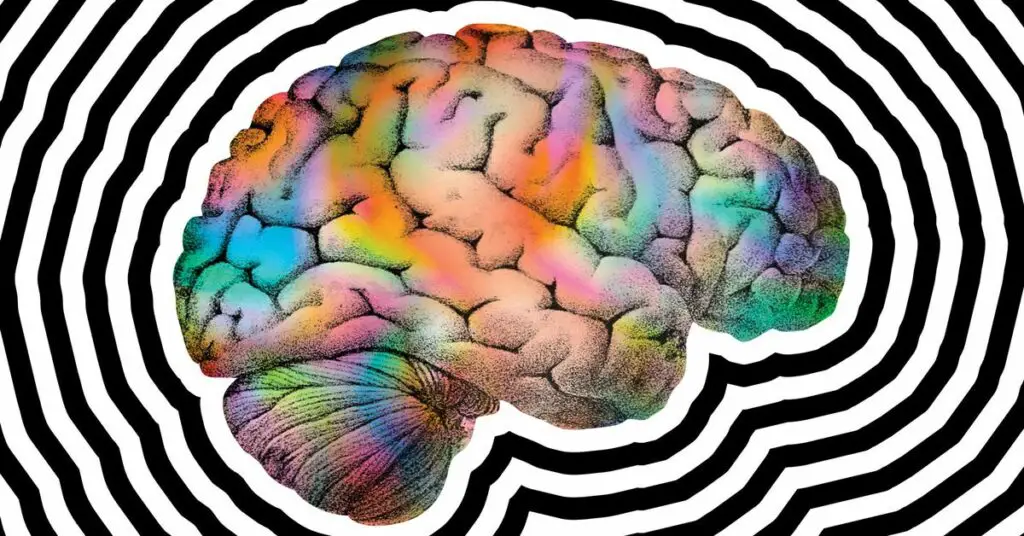
So far, the available research indicates that magic mushrooms can have a lasting impact when it comes to reducing symptoms of depression and anxiety.
Now, researchers are working hard to develop a better understanding of the underlying mechanisms at work when treating depression with magic mushrooms. Understanding how psilocybin works in the body and the brain to reduce depression will allow clinicians and medical professionals to develop stronger treatment protocols that maximize the potential of psilocybin therapy.
Below, we summarize some of the key findings from current research investigating how magic mushrooms help with depression.
Authors: Robin L. Carhart-Harris, David Erritzoe, Tim Williams, James M. Stone, Laurence J. Reed, Alessandro Colasanti, Robin J. Tyacke, Robert Leech, Andrea L. Malizia, Kevin Murphy, Peter Hobden, John Evans, Amanda Feilding, Richard G. Wise, and David J. Nutt.
Journal of Publication: Proceedings of the National Academy of Sciences (PNAS).
Date Published: February 7th, 2012.
Overview: This study, conducted by a team of researchers from throughout Europe and the UK, was one of the first to use neuroimaging to understand the transition between normal consciousness and the psychedelic state. The goal of this study was to better understand how psilocybin works in the brain.
Key Findings: This study used neuroimaging techniques to monitor the effects of psilocybin in the brain for a group of 30 patients. The main finding in the study was that psilocybin decreased cerebral blood flow in the posterior cingulate cortex (PCC) and decreased positive coupling between the PCC and the medial prefrontal cortex (mPFC). The size of this decrease was directly correlated to the subjective hallucinogenic effects of psilocybin.
Activity in the mPFC is known to be elevated during depression, so the deactivation of the mPFC by psilocybin seems to indicate a possible mechanism for relieving depression via psilocybin therapy.
Authors: Rainer Kraehenmann, André Schmidt, Karl Fristone, Katrin H. Preller, Erich Seifritz, and Franz X. Vollenweider.
Journal of Publication: NeuroImage: Clinical.
Date Published: August 22nd, 2015.
Overview: At the time of this study, researchers were already aware that psilocybin therapy seemed to reduce blood flow to the amygdala, potentially accounting for the mood-enhancing effects of magic mushrooms. The goal of this study was to understand more about the influence of psilocybin on threat-processing in the brain.
Key Findings: This study was conducted by analyzing neuroimaging data that was collected from patients during a previous experiment. The analysis ultimately showed that psilocybin decreased threat sensitivity in the visual cortex by activating a special type of serotonin receptor that helps reduce activity in the amygdala. This process suppresses the processing of negative stimuli and enhances the processing of positive stimuli, a mechanism which may explain the mood-improving effects of psilocybin therapy.
Authors: Rosalind Watts, Camilla Day, Jacob Krzanowski, David J. Nutt, and Robin L. Carhart-Harris.
Journal of Publication: Journal of Humanistic Psychology.
Date Published: June 19th, 2017.
Overview: While other investigations into the mechanisms by which psilocybin can moderate depression have focused on neuroimaging techniques, this study focuses on how patients experience the therapy and the long-term emotional impacts that result. The goal of this study was to better understand how patients perceive the value of magic mushrooms as a treatment for depression.
Key Findings: This study involved 20 patients who received psilocybin therapy treatments and were interviewed about their experiences. Patients identified two emotional changes that were brought on by the therapy and believed to help with symptoms of depression:
- Increased feelings of connectedness – Patients who previously reported feeling disconnected from themselves, others, and the world, said that they felt a stronger overall sense of connectivity after undergoing psilocybin therapy.
- Increased feelings of acceptance – Patients who previously reported avoidant and detached behaviors with respect to their own emotions said that they felt a pervasive sense of acceptance of their emotional state and reported decreased avoidant behaviors.
These findings seem to indicate that psilocybin treatment can produce emotional and behavioral changes that combat symptoms of depression. Patients also reported that while other treatments like talk therapy reinforced their feelings of disconnectedness and habit of emotional avoidance, psilocybin therapy seemed to have the opposite effect.
Authors: Leor Roseman, David J. Nutt, and Robin L. Carhart-Harris.
Journal of Publication: Frontiers in Pharmacology.
Date Published: January 17th, 2018.
Overview: Researchers conducting this study believed that the quality of a therapeutic experience involving psilocybin could be highly predictive of long-term mental health improvements. The purpose of this study was to test this belief using data from patients who received psilocybin treatments for treatment-resistant depression.
Key Findings: This study ultimately revealed a strong connection between the quality of psychedelic experiences in the context of psilocybin therapy and the overall impact on mental health. This finding indicates that clinicians should be able to maximize patient outcomes by optimizing their therapy protocols to deliver a more intense, profound, and psychologically transformative experience.
Research Summary
While the exact mechanisms that underlie the reduction of depression symptoms via psilocybin therapy are not totally clear, researchers have identified several factors that play a role.
We’ve identified that psilocybin acts on special serotonin receptors in the brain known as 5-HT2A receptors. We know that this process seems to decrease activity in both the amygdala and the medial prefrontal cortex, which serves to mitigate the fight-or-flight response and make patients less reactive to negative stimuli (and more reactive to positive ones).
We also know that emotional experiences can play a role in reducing depressive symptoms, especially when patients have high-quality experiences that enhance their sense of connectedness and acceptance of their own emotions.
Still, there’s plenty of additional research to be done before we can fully understand why magic mushrooms seem to work so well for treating depression.
Magic Mushrooms and Depression FAQ
Before we wrap up, we just want to quickly address some of the most common questions that come up during conversations about magic mushrooms and depression.
What is treatment-resistant depression?
The most common treatments for depression include antidepressants like Prozac and Zoloft, along with various forms of psychotherapy. These treatments work for many people suffering with depression – but they do not work for everyone.
You may be diagnosed with treatment-resistant depression if your symptoms fail to improve after receiving psychotherapy or taking antidepressants. When this is the case, a clinician may pursue additional treatment options in hopes of mitigating your symptoms and improving your quality of life.
Which magic mushrooms are the best for treating depression?
There are many different species of magic mushrooms that grow in the wild – so which one is the best for treating depression?
In a way, this is the wrong question.
It isn’t the mushrooms themselves that treat the depression – it’s the hallucinogenic compound psilocybin that seems to produce the positive effects. In most studies, patients are administered a purified form of psilocybin either orally or intravenously without ever seeing a mushroom.
Based on our review of the available research, a dosage of 20-30 milligrams of psilocybin per 70kg of body weight seemed to produce good results for most people.
Can magic mushrooms cure depression?
Whether magic mushrooms can cure your depression depends on a variety of factors, such as the underlying causes of your depression, the quality of your psychedelic experiences, the overall quality of your treatment program, and the dosage of psilocybin that you receive.
While there’s no guarantee that taking magic mushrooms will cause your depression to permanently vanish, there’s plenty of evidence that psilocybin therapy often results in the long-term reduction of depressive symptoms and improved quality of life.
Summary
Thanks for reading all the way to the end!
Here’s a quick summary of everything we covered:
- Researchers have found magic mushrooms to be effective in the treatment of end-of-life depression, major depressive disorder, and treatment-resistant depression.
- Researchers are still unsure of how exactly psilocybin works to decrease depressive symptoms, although several mechanisms have been evaluated and proposed.
- The effectiveness of psilocybin therapy depends on the quality of the experience, so there’s plenty of room for clinicians to develop strong treatment protocols that enhance therapeutic outcomes.
Based on these findings, we’re tremendously excited for what the future holds and the incredible potential of magic mushrooms to treat depression and other mental disorders. We hope you are too!
.
